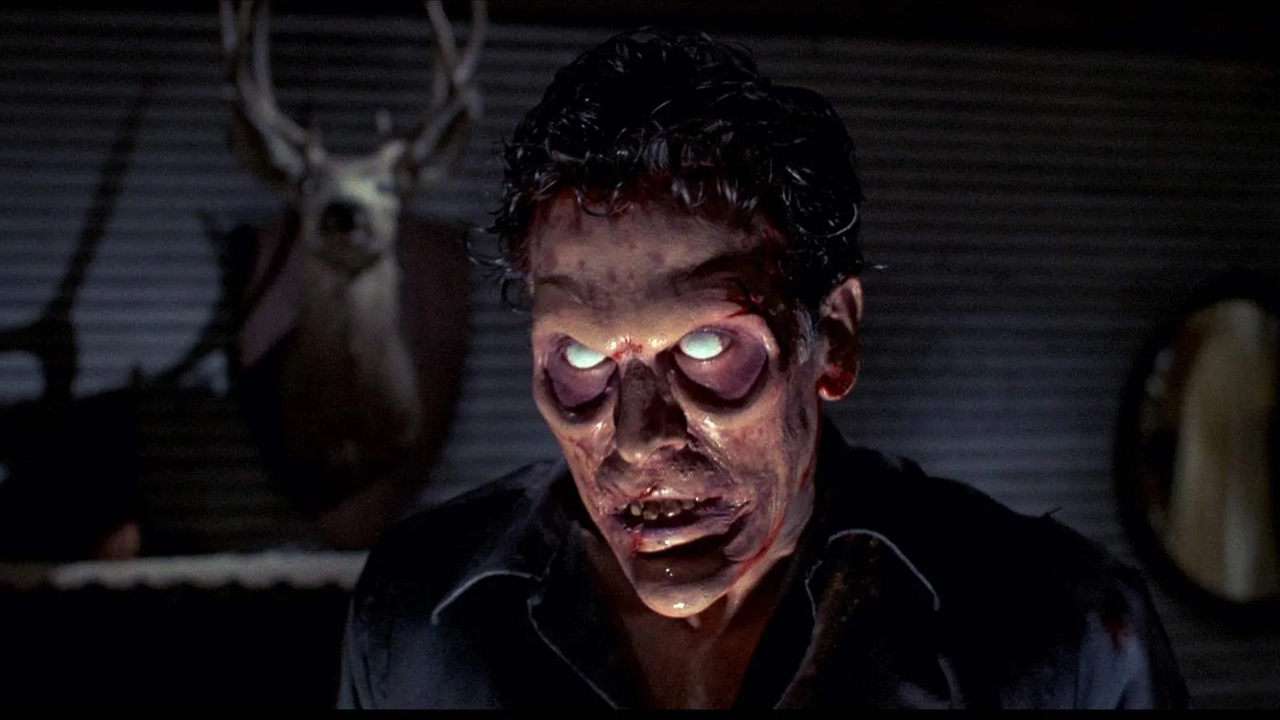

Streaming
Top 5 Horror Comedies of All Time: A Fan’s Guide to the Best of Both Worlds
As a fan of horror comedies, there’s nothing quite like the mix of scares and laughs that the genre delivers. The blend of terrifying monsters, supernatural elements, and gut-busting humor creates a unique experience that keeps audiences entertained and on edge. Over the years, horror comedies have given us some truly unforgettable films that deliver both genuine fright and hilarious moments. Here’s a countdown of the top five horror comedies ever, with a brief description of each and why they stand out as the best in this hybrid genre.

1. Shaun of the Dead (2004)
Director: Edgar Wright
Starring: Simon Pegg, Nick Frost, Kate Ashfield
Shaun of the Dead is widely regarded as one of the greatest horror comedies of all time, and for good reason. Directed by Edgar Wright, this British film perfectly balances humor and zombie carnage. The story follows Shaun (Simon Pegg), an average guy who tries to navigate a zombie apocalypse with his best friend Ed (Nick Frost) while attempting to win back his ex-girlfriend and mend his relationship with his mom. What makes Shaun of the Dead so great is its clever writing, sharp wit, and genuinely touching moments amidst the blood and guts.
Why It’s Great: Shaun of the Dead is a masterclass in genre-blending, with perfect comedic timing, memorable characters, and plenty of zombie-fueled action. It’s a heartfelt tribute to both horror and comedy that still stands as the gold standard for horror comedies.

2. Evil Dead II (1987)
Director: Sam Raimi
Starring: Bruce Campbell, Sarah Berry, Dan Hicks
If you love over-the-top gore, slapstick humor, and a wildly charismatic lead, Evil Dead II is the perfect horror comedy. Directed by Sam Raimi, the film serves as both a sequel and a partial remake of The Evil Dead (1981), following Ash Williams (Bruce Campbell) as he battles demons and the forces of evil in a cabin deep in the woods. Evil Dead II is packed with absurd amounts of blood, creative practical effects, and Bruce Campbell’s unmatched physical comedy. It’s a manic, fast-paced horror rollercoaster with plenty of laughs.
Why It’s Great: Evil Dead II is legendary for its mix of intense horror and slapstick comedy. Raimi’s inventive camera work, Campbell’s performance, and the film’s unique blend of gore and humor make it a genre classic that paved the way for countless horror comedies.
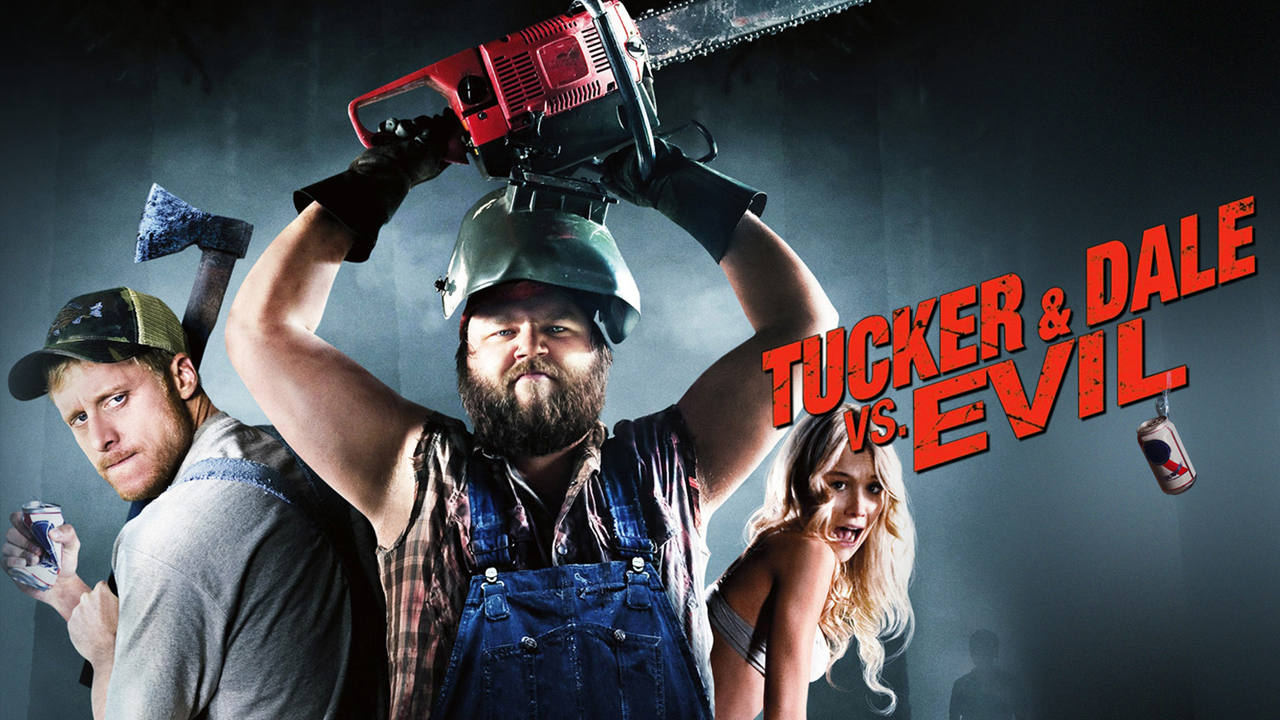
3. Tucker and Dale vs. Evil (2010)
Director: Eli Craig
Starring: Alan Tudyk, Tyler Labine, Katrina Bowden
This hidden gem flips the usual horror movie tropes on their head. Tucker and Dale vs. Evil follows two kind-hearted hillbillies, Tucker (Alan Tudyk) and Dale (Tyler Labine), who are mistaken for murderous backwoods killers by a group of college kids during a vacation in the woods. As misunderstandings pile up, the kids inadvertently cause their own demise in hilariously gruesome ways. This film cleverly subverts slasher tropes, turning the expected villains into lovable heroes.
Why It’s Great: Tucker and Dale vs. Evil stands out for its brilliant satire of the horror genre, offering a fresh, comedic perspective on classic slasher films. Its clever writing, endearing characters, and hilarious death scenes make it a must-watch for any horror-comedy fan.

4. What We Do in the Shadows (2014)
Directors: Taika Waititi, Jemaine Clement
Starring: Taika Waititi, Jemaine Clement, Jonny Brugh
What We Do in the Shadows is a mockumentary-style comedy about a group of vampires sharing a flat in modern-day Wellington, New Zealand. Directed by and starring Taika Waititi and Jemaine Clement, this film brings a fresh take to vampire lore by presenting the undead as relatable, bumbling housemates. The characters—including the ancient Nosferatu-like Petyr and the feuding vampires Vladislav and Viago—deal with mundane issues like paying rent, house chores, and getting into nightclubs, all while navigating their eternal lives.
Why It’s Great: With its deadpan humor, clever writing, and lovable characters, What We Do in the Shadows is a brilliant take on the vampire genre. It offers both horror and humor in spades, making it a modern classic that appeals to horror fans and comedy lovers alike.

5. Cabin in the Woods (2012)
Director: Drew Goddard
Starring: Kristen Connolly, Chris Hemsworth, Anna Hutchison
Cabin in the Woods is more than just a horror-comedy—it’s a deconstruction of the entire horror genre. Directed by Drew Goddard and co-written by Joss Whedon, the film starts as a familiar setup: a group of friends heads to a remote cabin for a weekend getaway, only to be terrorized by supernatural forces. However, it quickly becomes clear that there’s more going on beneath the surface, as a mysterious organization controls the horrors unfolding for a sinister purpose. Cabin in the Woods expertly blends humor with horror, poking fun at genre clichés while delivering genuine scares.
Why It’s Great: Cabin in the Woods is brilliant for its meta-commentary on horror films, offering both a love letter to and a critique of the genre. The film is packed with twists, memorable monsters, and a witty script, making it a standout horror-comedy that’s as smart as it is scary.
What makes horror comedies so enjoyable is their ability to balance fear with laughter. These five films masterfully blend the two genres, offering everything from clever satire to blood-soaked slapstick. Whether you prefer the classic zombie comedy of Shaun of the Dead or the meta-humor of Cabin in the Woods, each film provides a unique take on horror while delivering plenty of laughs along the way.
For fans of both genres, these films represent the best of horror-comedy, showcasing how terrifying monsters and gut-busting jokes can exist side by side.
Streaming
Review: Pushpa: The Rise (2021)
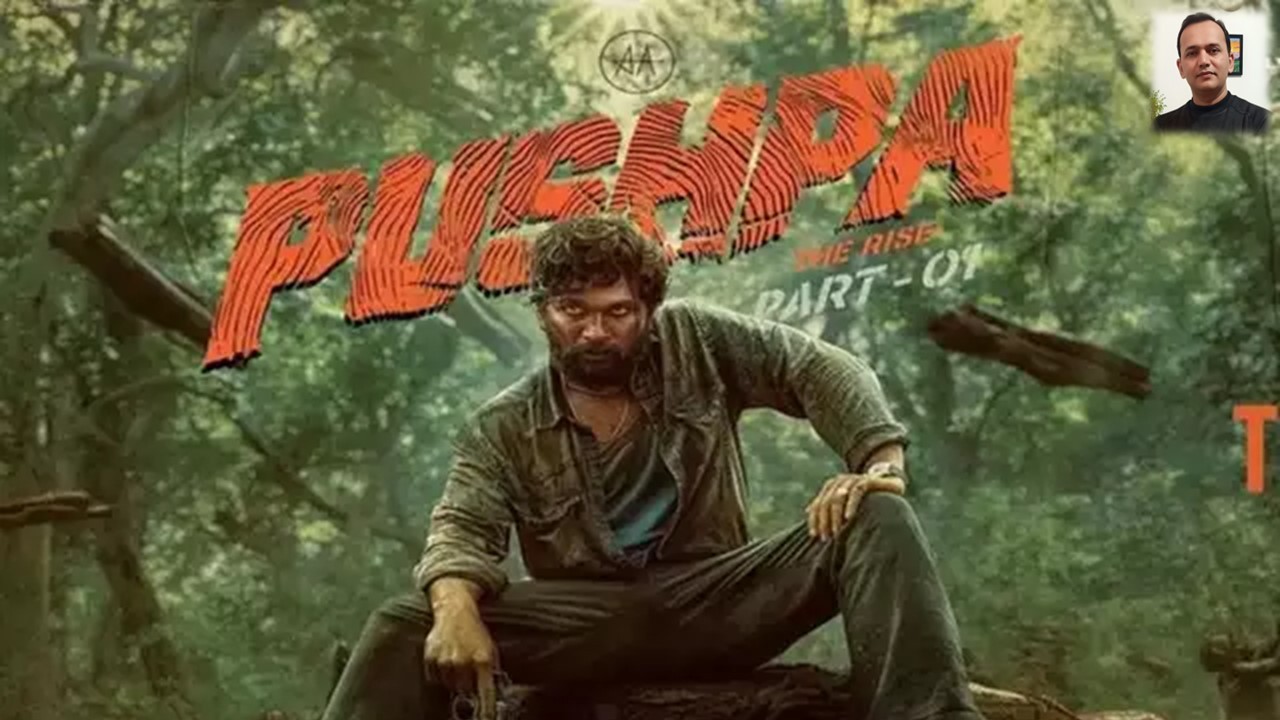
Director: Sukumar
Cast: Allu Arjun, Rashmika Mandanna, Fahadh Faasil
Genre: Action, Drama
Rating: 4.5/5
Pushpa: The Rise is a raw, adrenaline-fueled ride that showcases the underbelly of the red sandalwood smuggling trade in Andhra Pradesh. Directed by Sukumar, this movie brilliantly blends high-octane action with emotionally driven storytelling, making it a must-watch for fans of Telugu cinema and action dramas.
The narrative follows Pushpa Raj (Allu Arjun), a laborer in the red sandalwood trade, as he climbs the ranks to become a powerful figure. Born into poverty and scorned for his illegitimacy, Pushpa’s journey is marked by grit, ambition, and a fierce sense of self-respect. The film deftly balances the action-packed rise of Pushpa with moments of vulnerability, particularly in his tumultuous romance with Srivalli (Rashmika Mandanna).
The antagonist, Bhanwar Singh Shekhawat (Fahadh Faasil), is introduced towards the film’s end, setting the stage for a gripping sequel. The climactic confrontation between Pushpa and Shekhawat is a masterclass in tension-building, leaving viewers eagerly awaiting Pushpa: The Rule.
Allu Arjun: This is Allu Arjun’s film through and through. His transformation into Pushpa is a revelation, from his rugged look to his unapologetic demeanor. His mannerisms, including the now-iconic shoulder rub and dialogue delivery, make Pushpa an unforgettable character.
Rashmika Mandanna: While her role as Srivalli adds emotional depth to the story, it feels slightly underutilized. However, her chemistry with Allu Arjun is undeniable.
Fahadh Faasil: Despite limited screen time, Fahadh delivers a chilling performance as the cold and calculating Shekhawat. His presence promises an explosive conflict in the sequel.
Sukumar’s direction is stellar, balancing mass appeal with nuanced storytelling. The screenplay maintains a brisk pace, seamlessly weaving action sequences with character development. The film’s raw and grounded tone is a departure from the glossy feel of many mainstream Telugu films, adding authenticity to the story.
Mirosław Kuba Brożek’s cinematography is stunning, capturing the lush forests of Andhra Pradesh and the gritty world of the red sandalwood trade.
Devi Sri Prasad’s music is another highlight. Tracks like “Srivalli” and “Oo Antava” became cultural phenomena, while the background score enhanced the film’s intensity.
Action Sequences: The action choreography is visceral and hard-hitting, perfectly complementing the film’s tone.
The film explores themes of ambition, class struggle, and self-respect. Pushpa’s refusal to bow down to societal norms resonates deeply, making him a relatable anti-hero. The story also critiques the systemic exploitation of laborers, adding a layer of social commentary.
Pushpa: The Rise is an exemplary action-drama that redefines the Telugu film industry’s global appeal. With a magnetic performance by Allu Arjun, stellar direction by Sukumar, and unforgettable music, it stands out as one of the best films of 2021. While it occasionally falters with some underdeveloped subplots, the overall experience is nothing short of spectacular.
4.5/5 Pushpa: The Rise is a cinematic feast that deserves its cult status. Whether you’re a fan of Telugu action films or a newcomer, this film is a must-watch. Its cliffhanger ending ensures that Pushpa: The Rule will be even bigger and better.
Streaming
KGF: Chapter 2
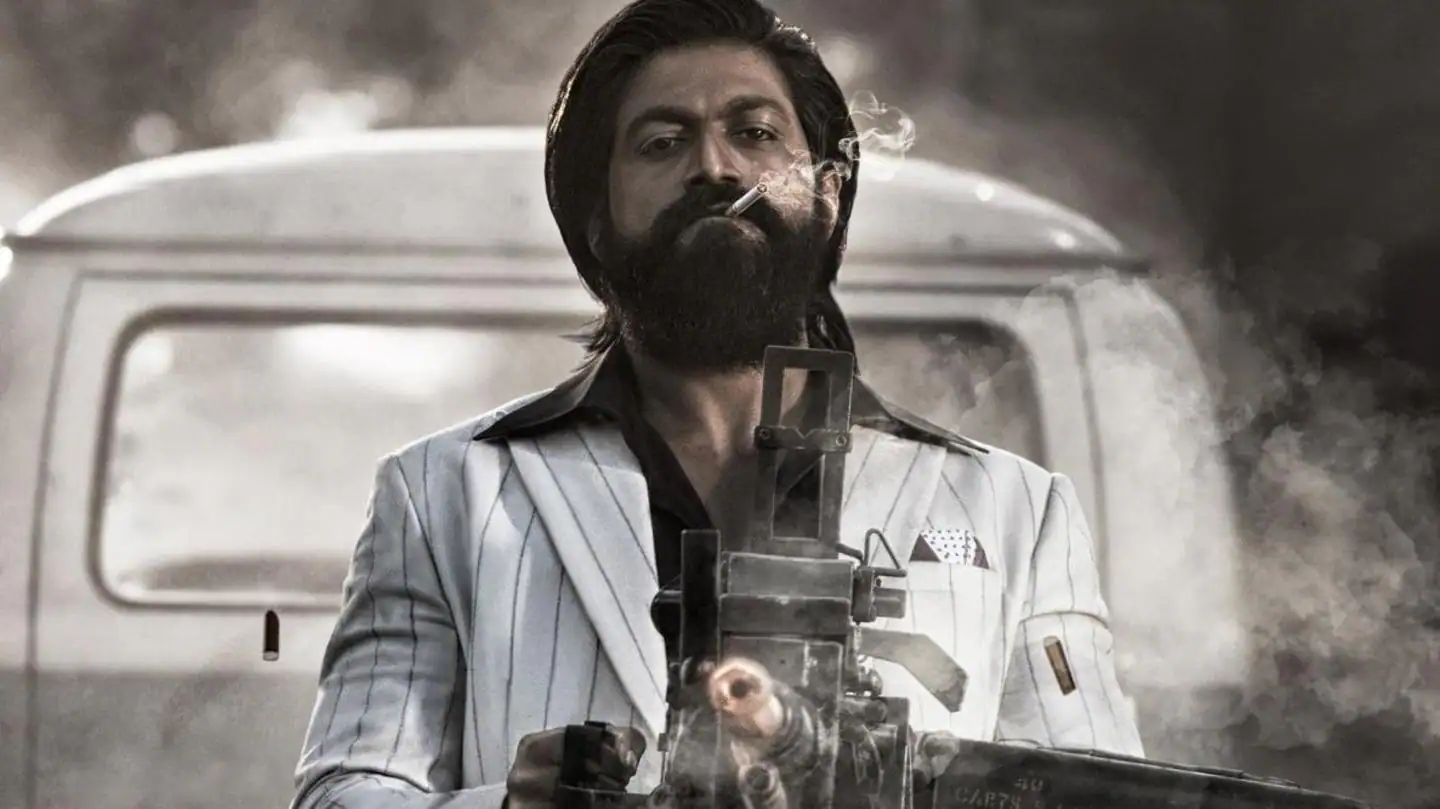
Director: Prashanth Neel
Cast: Yash, Sanjay Dutt, Raveena Tandon, Srinidhi Shetty
Genre: Action, Drama
Rating: 4.5/5
KGF: Chapter 2 is an explosive sequel to the 2018 blockbuster KGF: Chapter 1. Directed by Prashanth Neel, the film elevates the gritty narrative of Rocky (played by Yash), a man who rises from poverty to become a feared and revered leader. The sequel builds on the success of the first chapter with an even grander scale, intense drama, and jaw-dropping action sequences.
The story picks up with Rocky establishing his dominance over the Kolar Gold Fields after eliminating his rival, Garuda. As the “king of KGF,” Rocky faces new challenges, including the vengeful Adheera (Sanjay Dutt), who returns to reclaim what he believes is rightfully his. Meanwhile, political power struggles arise, with Prime Minister Ramika Sen (Raveena Tandon) intent on curbing Rocky’s influence.
The film delves deeper into Rocky’s psyche, exploring his motivations, vulnerabilities, and unrelenting ambition. It balances high-octane action with emotional depth, as Rocky continues his fight for survival and legacy.
Yash’s Star Power: Yash’s portrayal of Rocky is magnetic. His intensity and swagger make the character larger-than-life while retaining a raw, emotional core.
Sanjay Dutt as Adheera: Inspired by Viking warriors, Dutt’s Adheera is a terrifying and formidable antagonist, creating memorable clashes with Rocky.
Visual and Technical Brilliance: The cinematography by Bhuvan Gowda captures the grandeur and darkness of KGF with stunning visuals. The action sequences are choreographed to perfection, blending realism with spectacle.
Ravi Basrur’s Music: The background score enhances the drama, creating an immersive experience.
Dialogues and Screenplay: Rocky’s punchlines, combined with the tightly written narrative, keep the audience engaged.
While the film is a cinematic treat, its pacing occasionally falters with some scenes overstaying their welcome. The sprawling cast and multiple subplots can make the narrative feel dense at times.
KGF: Chapter 2 is a roaring success that delivers on its promise of being bigger, bolder, and better than its predecessor. It combines a compelling story with spectacular action and unforgettable performances, particularly from Yash and Sanjay Dutt. The film solidifies the KGF franchise as a benchmark for Indian action cinema.
Final Rating: 4.5/5 Whether you’re a fan of action-packed epics or compelling character-driven dramas, KGF: Chapter 2 is a must-watch that will leave you exhilarated.
Streaming
KGF chapter 1 – A Gritty Saga of Power, Poverty, and Redemption
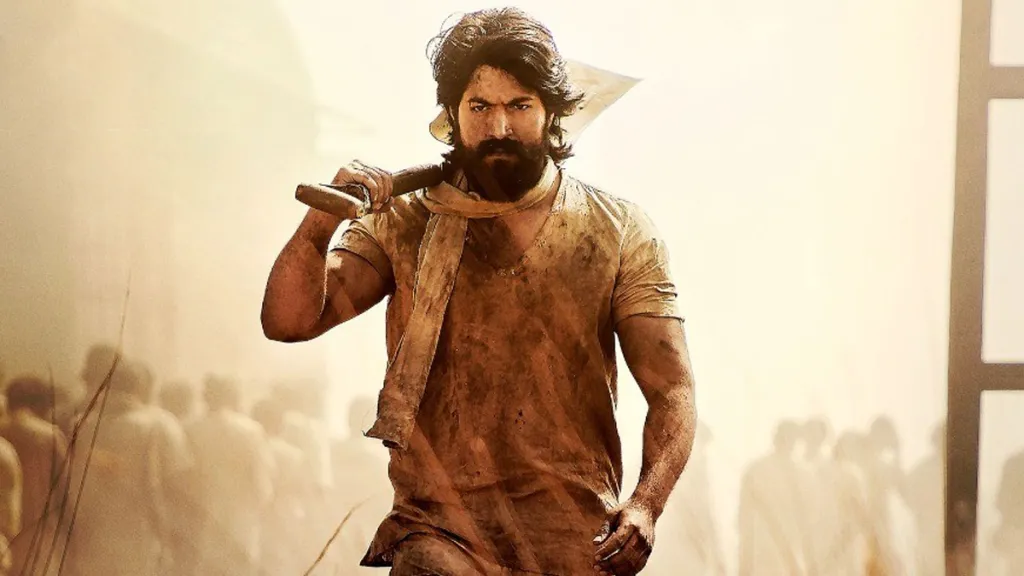
Indian cinema has a long-standing tradition of delivering grand narratives that are equal parts spectacle and soul. KGF: Chapter 1 (Kolar Gold Fields), directed by Prashanth Neel, is a prime example. This gripping action-drama chronicles the meteoric rise of Rocky, a man driven by a promise and fueled by his hunger for power. Released to critical acclaim, KGF has redefined the boundaries of storytelling in Indian cinema.
Set in the 1970s, KGF follows the journey of Rocky (Yash), a young boy born into poverty in the slums of Mumbai. From a tender age, Rocky is shaped by two forces: his mother’s dying wish for him to rise above his circumstances and his unyielding ambition to command respect and fear.
His journey takes him to the gold mines of Kolar, a lawless land ruled by brutal oppressors. The film tracks Rocky’s transformation from a street-smart hustler to a feared force who challenges an empire built on blood and exploitation.
The strength of KGF lies in its compelling protagonist. Yash delivers a magnetic performance as Rocky, embodying both his raw charisma and ruthless determination. The film paints a vivid picture of a man who thrives in adversity, using every setback as fuel for his ascent. Rocky is not a mere vigilante but a strategist, whose ability to inspire loyalty and strike fear sets him apart.
The movie captures his internal conflict beautifully — while he climbs the ladder of power, he never loses sight of his mother’s dream for him. This duality makes Rocky more than just a hero; he is a symbol of rebellion, resilience, and redemption.
At its core, KGF is a commentary on systemic oppression and the human spirit’s ability to rise against all odds. The stark contrast between the opulence of the gold fields’ rulers and the crushing poverty of its workers sets the stage for Rocky’s rebellion. His fight isn’t just personal; it’s for the voiceless, the oppressed, and the forgotten.
The film doesn’t shy away from showcasing the brutal realities of poverty and exploitation, making Rocky’s triumph all the more satisfying.
Prashanth Neel’s direction is nothing short of masterful. Every frame of KGF is meticulously crafted, from the sweeping vistas of the Kolar gold fields to the grimy underbelly of Mumbai’s streets. The gritty visuals are complemented by an electrifying background score that enhances the film’s larger-than-life moments.
The nonlinear narrative, interspersed with a journalist’s account of Rocky’s rise, keeps viewers engaged and adds layers to the storytelling.
The action sequences in KGF are a visual feast. Yash’s larger-than-life persona is amplified by choreographed fights that are brutal, balletic, and breathtaking. Each confrontation feels earned, showcasing Rocky’s ingenuity and brute strength. The climax, set against the backdrop of the Kolar gold mines, is particularly unforgettable.
KGF: Chapter 1 is a cinematic triumph that combines raw emotion, relentless action, and a protagonist you can’t help but root for. Yash’s performance and Prashanth Neel’s vision elevate the film to a league of its own, making it a benchmark in Indian cinema.
KGF is more than a film; it’s an experience. It’s a story of ambition, sacrifice, and the indomitable human spirit. Rocky’s climb from the depths of poverty to the pinnacle of power is not just inspiring — it’s electrifying.
Whether you’re a fan of action-packed dramas or epic tales of rebellion, KGF delivers on every front. With its gripping narrative and unforgettable performances, it’s a must-watch for anyone who loves a good underdog story.
Rating: 4.8/5 As Rocky says in the film, “Powerful people make places powerful.” By the end of KGF, you’ll realize that Rocky is one of them — and so is this film


